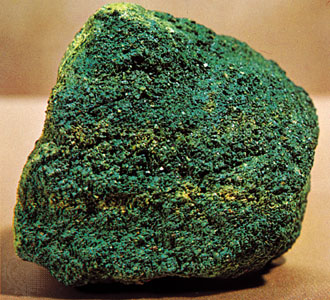In other words, Stinnesbeck thought the rock had been formed slowly, by sedimentation.
也就是说,Stinnesbeck认为岩石是因为缓慢的沉积作用形成的。
There must have been a long time, between the impact below the core and the arrival of the Iridium at the top.
所以岩芯下的碰撞坑和顶部的铱元素层必然间隔了很长一段时间。
Then they noticed something else in the core.
后来他们在岩芯中又有了其它发现。
Traces of what looked like a green clay mineral.
看上去像是某种绿色粘土矿物的痕迹。
Samples were sent for analysis by a technique called x-ray diffraction.

Every mineral has its own unique signature when exposed to x-rays.
在X光下,每种矿物都有其独特的标记。
The analysis revealed a clay mineral called Glauconite, and Glauconite has one vital characteristic.
分析显示这是一种叫做海绿石的粘土矿物,而海绿石有一个重要特征。
Glauconite needs many thousands of years to form,
海绿石需要上万年才能形成,
so it's indicating interruptions in the sedimentation of this limestone,
它表明这些石灰岩的沉积过程曾经中断过,
so it extends even more the time, the period of time which is needed for the deposition of this limestone.



